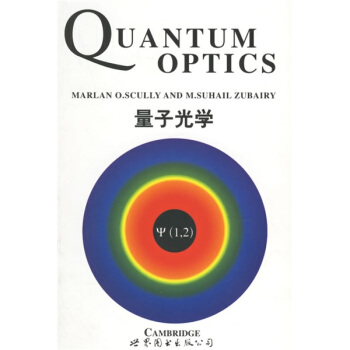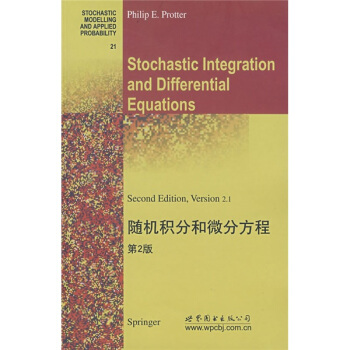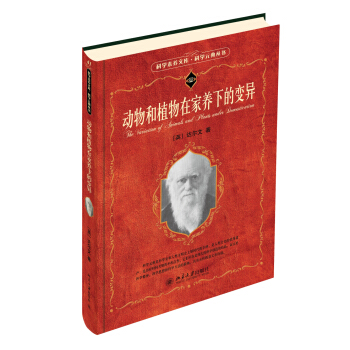![蒙特卡罗统计方法(第2版)(英文版) [Monte Carlo Statistical Methods 2nd ed]](https://pic.tinynews.org/10104499/e1a483ef-b9eb-42b5-a82f-bf0aeb11a576.jpg)

具体描述
内容简介
It is a tribute to our profession that a textbook that was current in 1999 is starting to feel old. The work for the first edition of Monte Carlo Statistical Methods (MCSM1) was finished in late 1998, and the advances made since then, as well as our level of understanding of Monte Carlo methods, have grown a great deal. Moreover, two other things have happened. Topics that just made it into MCSM1 with the briefest treatment (for example, perfect sampling) have now attained a level of importance that necessitates a much more thorough treatment. Secondly, some other methods have not withstood the test of time or, perhaps, have not yet been fully developed, and now receive a more appropriate treatment.When we worked on MCSM1 in the mid-to-late 90s, MCMC algorithms were already heavily used, and the flow of publications on this topic was atsuch a high level that the picture was not only rapidly changing, but also necessarily incomplete. Thus, the process that we followed in MCSM1 was that of someone who was thrown into the ocean and was trying to grab onto the biggest and most seemingly useful objects while trying to separate the flotsam from the jetsam. Nonetheless, we also felt that the fundamentals of many of these algorithms were clear enough to be covered at the textbook alevel, so we" swam on.
作者简介
作者:(法国)罗伯特(ChristianP.Robert)(法国)GeorgeCasella内页插图
目录
Preface to the Second EditionPreface to the First Edition
1 Introduction
1.1 Statistical Models
1.2 Likelihood Methods
1.3 Bayesian Methods
1.4 Deterministic Numerical Methods
1.4.1 Optimization
1.4.2 Integration
1.4.3 Comparison
1.5 Problems
1.6 Notes
1.6.1 Prior Distributions
1.6.2 Bootstrap Methods
2 Random Variable Generation
2.1 Introduction
2.1.1 Uniform Simulation
2.1.2 The Inverse Transform
2.1.3 Alternatives
2.1.4 Optimal Algorithms
2.2 General Transformation Methods
2.3 Accept-Reject Methods
2.3.1 The Fundamental Theorem of Simulation
2.3.2 The Accept-Reject Algorithm
2.4 Envelope Accept-Reject Methods
2.4.1 The Squeeze Principle
2.4.2 Log-Concave Densities
2.5 Problems
2.6 Notes
2.6.1 The Kiss Generator
2.6.2 Quasi-Monte Carlo Methods
2.6.3 Mixture RepresentatiOnS
3 Monte Carlo Integration
3.1 IntroduCtion
3.2 Classical Monte Carlo Integration
3.3 Importance Sampling
3.3.1 Principles
3.3.2 Finite Variance Estimators
3.3.3 Comparing Importance Sampling with Accept-Reject
3.4 Laplace Approximations
3.5 Problems
3.6 Notes
3.6.1 Large Deviations Techniques
3.6.2 The Saddlepoint Approximation
4 Controling Monte Carlo Variance
4.1 Monitoring Variation with the CLT
4.1.1 Univariate Monitoring
4.1.2 Multivariate Monitoring
4.2 Rao-Blackwellization
4.3 Riemann Approximations
4.4 Acceleration Methods
4.4.1 Antithetic Variables
4.4.2 Contr01 Variates
4.5 Problems
4.6 Notes
4.6.1 Monitoring Importance Sampling Convergence
4.6.2 Accept-Reject with Loose Bounds
4.6.3 Partitioning
5 Monte Carlo Optimization
5.1 Introduction
5.2 Stochastic Exploration
5.2.1 A Basic Solution
5.2.2 Gradient Methods
5.2.3 Simulated Annealing
5.2.4 Prior Feedback
5.3 Stochastic Approximation
5.3.1 Missing Data Models and Demarginalization
5.3.2 Thc EM Algorithm
5.3.3 Monte Carlo EM
5.3.4 EM Standard Errors
5.4 Problems
5.5 Notes
5.5.1 Variations on EM
5.5.2 Neural Networks
5.5.3 The Robbins-Monro procedure
5.5.4 Monte Carlo Approximation
6 Markov Chains
6.1 Essentials for MCMC
6.2 Basic Notions
6.3 Irreducibility,Atoms,and Small Sets
6.3.1 Irreducibility
6.3.2 Atoms and Small Sets
6.3.3 Cycles and Aperiodicity
6.4 Transience and Recurrence
6.4.1 Classification of Irreducible Chains
6.4.2 Criteria for Recurrence
6.4.3 Harris Recurrence
6.5 Invariant Measures
6.5.1 Stationary Chains
6.5.2 Kac’s Theorem
6.5.3 Reversibility and the Detailed Balance Condition
6.6 Ergodicity and Convergence
6.611 Ergodicity
6.6.2 Geometric Convergence
6.6.3 Uniform Ergodicity
6.7 Limit Theorems
6.7.1 Ergodic Theorems
6.7.2 Central Limit Theorems
6.8 Problems
6.9 Notes
6.9.1 Dri允Conditions
6.9.2 Eaton’S Admissibility Condition
6.9.3 Alternative Convergence Conditions
6.9.4 Mixing Conditions and Central Limit Theorems
6.9.5 Covariance in Markov Chains
7 The Metropolis-Hastings Algorithm
7.1 The MCMC Principle
7.2 Monte Carlo Methods Based on Markov Chains
7.3 The Metropolis-Hastings algorithm
7.3.1 Definition
7.3.2 Convergence Properties
7.4 The Independent Metropolis-Hastings Algorithm
7.4.1 Fixed Proposals
7.4.2 A Metropolis-Hastings Version of ARS
7.5 Random walks
7.6 Optimization and Contr01
7.6.1 Optimizing the Acceptance Rate
7.6.2 Conditioning and Accelerations
7.6.3 Adaptive Schemes
7.7 Problems
7.8 Nores
7.8.1 Background of the Metropolis Algorithm
7.8.2 Geometric Convergence of Metropolis-Hastings Algorithms
7.8.3 A Reinterpretation of Simulated Annealing
7.8.4 RCference Acceptance Rates
7.8.5 Langevin Algorithms
8 The Slice Sampler
8.1 Another Look at the Fundamental Theorem
8.2 The General Slice Sampler
8.3 Convergence Properties of the Slice Sampler
8.4 Problems
8.5 Notes
8.5.1 Dealing with Di伍cult Slices
9 The Two-Stage Gibbs Sampler
9.1 A General Class of Two-Stage Algorithms
9.1.1 From Slice Sampling to Gibbs Sampling
9.1.2 Definition
9.1.3 Back to the Slice Sampler
9.1.4 The Hammersley-Clifford Theorem
9.2 Fundamental Properties
9.2.1 Probabilistic Structures
9.2.2 Reversible and Interleaving Chains
9.2.3 The Duality Principle
9.3 Monotone Covariance and Rao-Btackwellization
9.4 The EM-Gibbs Connection
9.5 Transition
9.6 Problems
9.7 Notes
9.7.1 Inference for Mixtures
9.7.2 ARCH Models
10 The Multi-Stage Gibbs Sampler
10.1 Basic Derivations
10.1.1 Definition
10.1.2 Completion
……
11 Variable Dimension Models and Reversible Jump Algorithms
12 Diagnosing Convergence
13 Perfect Sampling
14 Iterated and Sequential Importance Sampling
A Probability Distributions
B Notation
References
Index of Names
Index of Subjects
前言/序言
He sat,continuing to look down the nave,when suddenly the solution to the problem just seemed to present itself.It was so simple,SO obvious he just started to laugh——P.C.Doherty.Satan in St MarysMonte Carlo statistical methods,particularly those based on Markov chains,have now matured to be part of the standard set of techniques used by statisticians.This book is intended to bring these techniques into the classroom. being(we hope)a self-contained logical development of the subject,with all concepts being explained in detail.and all theorems.etc.having detailed proofs.There is also an abundance of examples and problems,relating the concepts with statistical practice and enhancing primarily the application of simulation techniques to statistical problems of various difficulties.
This iS a textbook intended for a second-year graduate course.We do not assume that the reader has any familiarity with Monte Carlo techniques (such as random variable generation)or with any Markov chain theory. We do assume that the reader has had a first course in statistical theory at the level of Statistica!Inference bY Casella and Berger(1990).Unfortunately,a few times throughout the book a somewhat more advanced notion iS needed.We have kept these incidents to a minimum and have posted warnings when they occur.While this iS a book on simulation.whose actual implementation must be processed through a computer,no requirement lS made on programming skills or computing abilities:algorithms are presented in a program-like format but in plain text rather than in a specific programming language.(Most of the examples in the book were actually implemented in C.with the S-Plus graphical interface.)
用户评价
这本书的学术严谨性是毋庸置疑的,这一点从其参考文献的广度和深度就能体现出来。每当引入一个关键定理或一个新的模拟技术时,作者总能精确地追溯到其源头,并对不同学派的观点进行客观的评述。对于我这种希望深入挖掘特定算法发展脉络的读者来说,这种对学术历史的尊重和梳理是非常宝贵的。它鼓励读者不仅仅满足于学会使用现成的工具,更要理解这些工具是如何一步步演化至今的,这为后续进行方法创新打下了坚实的理论基础和批判性思维。
评分对于需要将理论付诸实践的研究人员来说,这本书的实用性简直无可挑剔。我尤其欣赏它在不同章节中穿插的那些精心挑选的案例分析,它们涵盖了从金融风险评估到生物信息学建模的多个领域,展示了蒙特卡罗方法在真实世界问题中的强大适用性。更重要的是,作者在讨论算法的实现细节时,会非常细致地指出不同参数设置对结果精度和计算效率的影响,这一点对于优化代码和进行敏感性分析至关重要。这些实践性的指导,远比纯粹的理论推导更有价值,它教会的不仅仅是“如何做”,更是“为什么这样做得更好”,体现了作者深厚的工程经验。
评分相较于我之前阅读过的几本同类书籍,这本书在“现代化”的体现上做得尤为出色。它没有固步自封于经典的经典方法,而是积极地将近些年来统计模拟领域取得的新进展融入其中,比如对高性能计算环境下的并行化模拟策略的讨论,以及在贝叶斯统计后验分析中应用新型采样器的介绍。这种与时俱进的内容组织,确保了读者所学知识不会因为时间的推移而迅速过时。可以说,它是一本面向未来的教材,既为我们夯实了基础,又为我们指明了前沿探索的方向,是一笔物超所值的投资。
评分这本书的书封设计得相当有品味,那种深沉的蓝色调搭配着简洁的银色字体,给人一种既专业又典雅的感觉,很符合它作为一本高级统计学教材的定位。我拿到手的时候,首先注意到的是它的纸张质量,厚实、平滑,即便是长时间阅读也不会觉得刺眼,这对于需要频繁翻阅和做笔记的读者来说,绝对是个加分项。装帧的工艺也看得出很扎实,即使是经常携带,书脊也没有出现明显的松动迹象。整体而言,从物理触感上来说,这本“升级版”的教材给我留下了非常好的第一印象,感觉就像是为那些严肃对待统计学研究的人士精心准备的工具书。它不仅仅是知识的载体,更像是一个值得信赖的伙伴,放在书架上都显得很有分量。
评分深入翻阅内容后,我发现作者在讲解复杂概念时的叙事节奏把握得相当到位,不像有些教材那样上来就抛出一大堆晦涩的数学符号,让人望而却步。它更像是一位经验丰富的导师,会先用非常直观的、生活中的例子作为引子,逐步引导读者理解随机抽样和模拟背后的深层逻辑。例如,在介绍MCMC方法时,他并没有直接跳入复杂的马尔可夫链理论,而是先搭建了一个关于“在迷雾中寻找目标”的场景比喻,这使得抽象的收敛性问题一下子变得清晰可感。这种循序渐进、注重直觉建立的教学方法,极大地降低了初学者接触这类前沿统计工具的心理门槛,确保了理论基础的稳固性,而非仅仅停留在公式的表面记忆。
评分帮人买的 给个好评吧, 发货很快
评分方便,实惠,书基本在京东买了。
评分蒙特卡罗算法真是天才算法 可以用到很多领域 学习学习
评分还没看,备用先,书总是越多越好
评分挺好的,下次有需要还是选择京东~~~
评分书收到了,很新很满意。当当物流效率很高,商品状态很新,正版无疑。趁着活动屯的数学名著,性价比超高,放在书架里有空就翻翻,了解科技前沿。
评分好评
评分蒙特卡罗统计方法(第2版)(英文版)
评分蒙特卡罗统计方法(第2版)(英文版)
相关图书
本站所有内容均为互联网搜索引擎提供的公开搜索信息,本站不存储任何数据与内容,任何内容与数据均与本站无关,如有需要请联系相关搜索引擎包括但不限于百度,google,bing,sogou 等
© 2026 book.tinynews.org All Rights Reserved. 静思书屋 版权所有





![普通高等教育“十一五”国家级规划教材·普通高等教育精品教材:生物化学原理(第2版) [Principles of Biochemistry] pdf epub mobi 电子书 下载](https://pic.tinynews.org/11094234/566bc603N51dbceb4.jpg)


![图论导论(第5版) [Introduction to Graph Theory] pdf epub mobi 电子书 下载](https://pic.tinynews.org/11666559/550bd068N818a3221.jpg)
![量子场论 [Quantum Field Theory] pdf epub mobi 电子书 下载](https://pic.tinynews.org/10104530/bc88533f-4ecb-47a9-b6cc-6a8b192bf75c.jpg)

![概率论和随机过程(第2版) [Theory of Probability and Random Processes] pdf epub mobi 电子书 下载](https://pic.tinynews.org/11124548/rBEHZ1CsqM0IAAAAAAChw71mNt0AAC5mQATYAoAAKHb030.jpg)
![拓扑学 [Topology] pdf epub mobi 电子书 下载](https://pic.tinynews.org/10914322/ba749394-93a2-4b36-a279-25b1cb7b22b6.jpg)
![量子场论(第3卷) [The Quantum Theory of Fields] pdf epub mobi 电子书 下载](https://pic.tinynews.org/11511852/53e180ccN773b28bd.jpg)

![量子光学基础(第4版) [Elements of Quantum Optics] pdf epub mobi 电子书 下载](https://pic.tinynews.org/10516008/7ee52b30-a7a9-4a9e-ac3e-9ca05db061e0.jpg)
![数学·统计学系列:立体几何技巧与方法 [Techniques and Methods for Solid Geometry] pdf epub mobi 电子书 下载](https://pic.tinynews.org/11492062/53f2c171N3d2a49ed.jpg)



